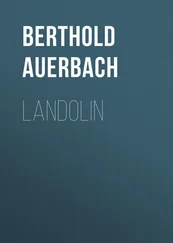Berthold Auerbach - On the Heights - A Novel
Здесь есть возможность читать онлайн «Berthold Auerbach - On the Heights - A Novel» — ознакомительный отрывок электронной книги совершенно бесплатно, а после прочтения отрывка купить полную версию. В некоторых случаях можно слушать аудио, скачать через торрент в формате fb2 и присутствует краткое содержание. ISBN: , Жанр: foreign_antique, foreign_prose, на английском языке. Описание произведения, (предисловие) а так же отзывы посетителей доступны на портале библиотеки ЛибКат.
- Название:On the Heights: A Novel
- Автор:
- Жанр:
- Год:неизвестен
- ISBN:http://www.gutenberg.org/ebooks/33294
- Рейтинг книги:4 / 5. Голосов: 1
-
Избранное:Добавить в избранное
- Отзывы:
-
Ваша оценка:
- 80
- 1
- 2
- 3
- 4
- 5
On the Heights: A Novel: краткое содержание, описание и аннотация
Предлагаем к чтению аннотацию, описание, краткое содержание или предисловие (зависит от того, что написал сам автор книги «On the Heights: A Novel»). Если вы не нашли необходимую информацию о книге — напишите в комментариях, мы постараемся отыскать её.
On the Heights: A Novel — читать онлайн ознакомительный отрывок
Ниже представлен текст книги, разбитый по страницам. Система сохранения места последней прочитанной страницы, позволяет с удобством читать онлайн бесплатно книгу «On the Heights: A Novel», без необходимости каждый раз заново искать на чём Вы остановились. Поставьте закладку, и сможете в любой момент перейти на страницу, на которой закончили чтение.
Интервал:
Закладка:
"Your husband and the landlord of the Chamois sent me," added Zenza, "and they both say it'll be easy enough for you to help me, and if you do, I'll be your slave as long as I live."
"Yes, I'd like to help you, but I can't see how. Things are not managed here as they are at home."
"Oh, you can find a way, quick enough. You're clever, the whole neighborhood says so; and I've known it ever so long, and said so, too, on last St. Leonard's day. Schenck, the tailor will bear me witness, and so will Spinnerwastl, too; 'Walpurga bears herself,' said I, 'as if she were one of the lowliest, but she's the first in the whole neighborhood. You'll all live to see what becomes of her. Her wisdom and her goodness will show themselves.' Now, Walpurga, you'll help me: won't you."
"Yes, as soon as there's a chance."
"But I can't wait. Thomas is to go to jail to-morrow, at daybreak, and, if he's not released to-day, there will be murder."
"My dear woman," interposed Mademoiselle Kramer, "his majesty the king declared a general amnesty at the birth of the crown prince. That covers your son's case, does it not?"
"No; that's the very trouble. All the courts in the country are against my Thomas. Look at this. It's all there. The innkeeper wrote it down, better than I can tell you. The writing must reach the king before noon, or it'll be too late. My son Thomas is walking up and down out there, and it's an even chance whether he goes to heaven or hell. He's got a double-barreled pistol with him, and he'll shoot the first man he looks at and himself, too, before this very palace, if I go out there without having done anything for him."
"Yes, but I can't run up to the king as I would to the innkeeper, or I'd gladly do it."
"I must sit down, my knees are breaking under me," exclaimed Zenza; and Mademoiselle Kramer hurried to bring her a chair. And while she sat there with drooping head, great tears dropped upon the bony, thick-veined hands that lay folded on her knees.
Walpurga motioned to Mademoiselle Kramer, who was trying to console the old woman. She wanted to tell her that Zenza was not so very good, after all, and that Thomas was still worse; but Mademoiselle Kramer turned about and said:
"I have an idea. Countess Wildenort's brother is aid-de-camp to his majesty, and, in half an hour from now, will present his report and get the countersign. Now, Walpurga, go to Countess Irma at once and request her to hand the petition to her brother, so that he may submit it to his majesty."
"Yes, yes, do go-do! Lord, what a wise angel you have here with you, Walpurga; – but go right off-don't lose a moment! May I stay here a little while longer, or shall I wait down there before the palace?"
"No! you may remain here, my good woman," said Mademoiselle Kramer, consoling her. "But hurry yourself," said she, addressing Walpurga, who still held the letter before her, and stood there as if immovable.
Walpurga left the apartment. When she drew near to Irma's door, she heard the countess, with fervid expression, singing Schumann's song to Friedrich Rueckert's words:
He came to me,
In storm and rain,
And boldly, he
My heart hath ta'en.
Was my heart won,
Or his, that day?
Methinks both hearts
Did meet half-way.
The chambermaid announced Walpurga. Irma stopped in the middle of her song.
"Welcome! What good thought brings you here?"
Walpurga hesitated, but, at last, preferred her request and handed the paper to the countess.
"Take courage," said Irma, consolingly.
She rang for a servant, to whom she said: "Tell my brother to come here at once." Then, addressing Walpurga, she continued: "I'll add a few words of my own. Be calm. I am glad to be able to grant your request. I've often wanted to ask you whether there was not some wish that you would like to have gratified. The king will surely grant the pardon."
Walpurga would have liked to interrupt her, but everything seemed as if bewitched. Before she could say a word, the aid-de-camp had come. Irma begged him to wait while she added a few lines of her own.
The aid-de-camp had taken his leave. Irma passed her hand over Walpurga's face and said: "Let me banish all your sad thoughts. Be happy and take my word for it-the man is saved. Go to the poor woman and quiet her in the mean while. I'll bring the answer to your room."
Walpurga could not find words, or she would have said something, even then. But the petition had already gone. After all no one would be harmed in the matter, and, although Thomas really was a wicked fellow, this might make a better man of him. Walpurga left Irma's apartment. Stopping at the door, for an instant, to recover herself, she heard Irma singing again. When she reached her room, she was in a calmer state and said to Zenza:
"Your Thomas will get off; depend upon it. But you must give me your word, and promise to keep it, too, that Thomas will become an honest man, and that you won't help him sell his stolen wares and hide his evil ways. You needn't look at me so, for I've a right to talk to you this way. I've risked a great deal for you."
"Yes, indeed; you've a right to say it," replied Zenza, in a half-earnest, half-jesting tone. "You make our whole neighborhood happy. We're all proud of you. On Sunday, before the church, I'll tell them what influence you have here, and they'll all believe me. Your mother was my playfellow, and if my Thomas had got an honest woman like you for his wife, he'd been thrifty, too. He must get himself a good wife. I'll give him no peace till he does."
Zenza was enjoying some good coffee which Mademoiselle Kramer had prepared for her, and the kind-hearted housekeeper filled her cup again and again.
"If I could only give my son some of this! Oh, how he must be suffering out there! But it serves him right; that's his punishment. He's on the lookout now, but not as a poacher. It's quite a different thing, now." Zenza was quite voluble and Mademoiselle Kramer was charmed with the frankness and motherly affection of the old woman.
When Zenza had emptied her cup and eaten nearly all the cake, she said:
"May I take this little bit of sugar with me? It'll always remind me that I've drunk coffee in the king's palace."
Mademoiselle Kramer wrapped a piece of cake in a paper, and said: "Take this to your son."
It seemed as though Zenza would never get done thanking them. She was in great good-humor, and asked permission to see the prince; but Walpurga refused it and well knew why; for, at home, Zenza was regarded as a witch and, even if it were mere superstition, thought Walpurga, who can know what might happen? She had already become so politic that she availed herself, as an excuse, of the doctor's order that no stranger should be allowed near the person of the crown prince.
Zenza now told them how great a commotion Walpurga's sudden departure had created in their neighborhood. Ever since, the people would talk of nothing else. The folks were all late at church on Sunday, because they had stopped before Walpurga's house and stared at it as if there was something new to be seen, and Hansei had been obliged to show his cow to half the congregation, as if there was something strange about it. But the thoughts of all were of Walpurga; and she also said that it was well known that Walpurga's influence had secured Stasi's betrothed his position as ranger. In spite of Walpurga's protestations that she knew nothing of it, Zenza insisted on her story, and praised her the more for her modesty.
The time passed quickly.
Countess Irma, her face radiant with joy, brought the king's letter of pardon.
Zenza would have fallen on her knees to her and kissed her feet, but Irma held her up and said:
"I've something more for you: take this, so that, besides being free, you may be able to get some pleasure."
Читать дальшеИнтервал:
Закладка:
Похожие книги на «On the Heights: A Novel»
Представляем Вашему вниманию похожие книги на «On the Heights: A Novel» списком для выбора. Мы отобрали схожую по названию и смыслу литературу в надежде предоставить читателям больше вариантов отыскать новые, интересные, ещё непрочитанные произведения.
Обсуждение, отзывы о книге «On the Heights: A Novel» и просто собственные мнения читателей. Оставьте ваши комментарии, напишите, что Вы думаете о произведении, его смысле или главных героях. Укажите что конкретно понравилось, а что нет, и почему Вы так считаете.












